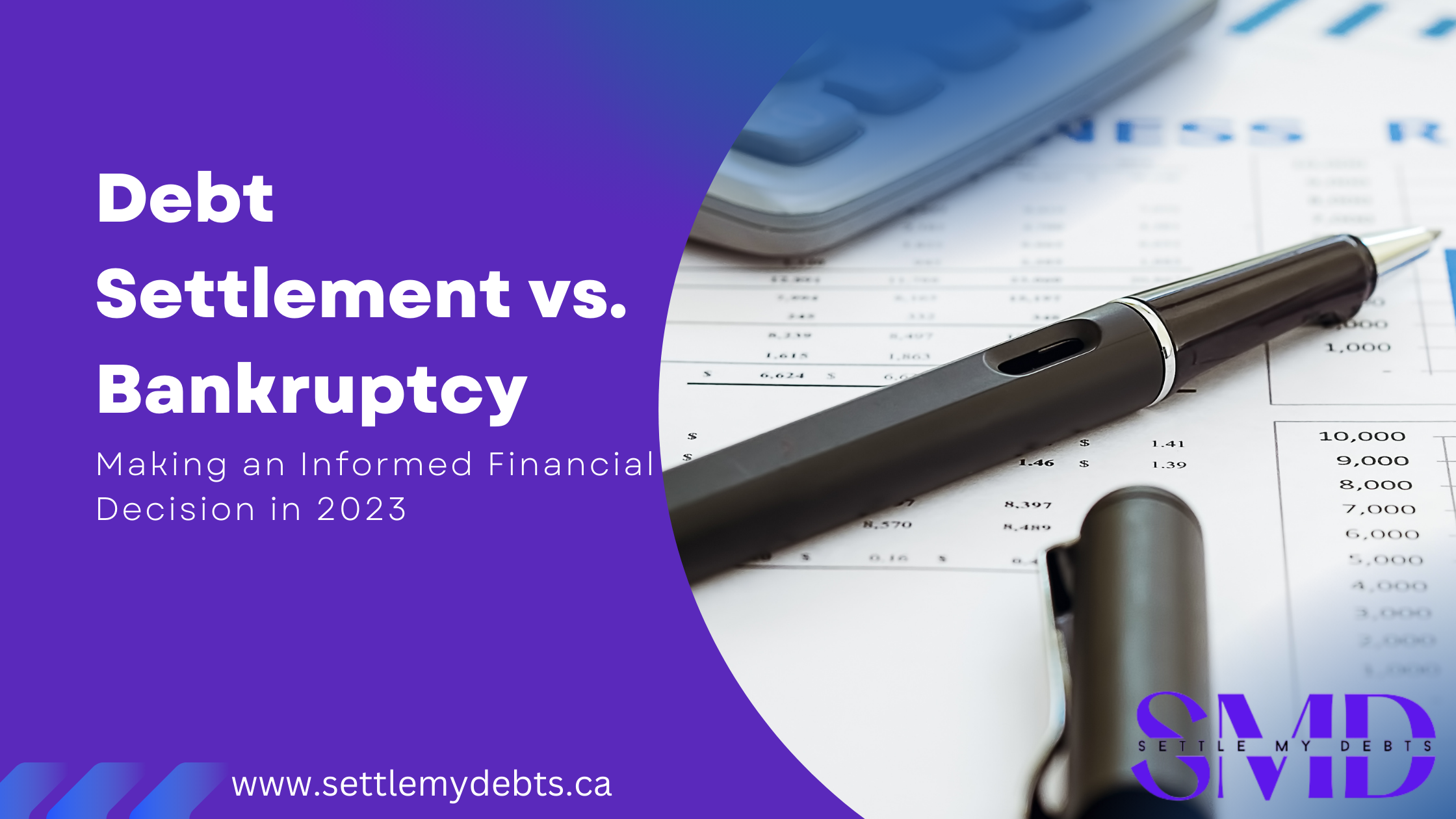When drowning in debt, it’s crucial to explore all available options for debt relief. Two common paths individuals often consider are debt settlement and bankruptcy. While both can provide a fresh start, understanding their key differences is essential in making an informed financial decision. In this blog, we’ll delve into the intricacies of debt settlement and bankruptcy, examining their pros and cons to help you choose the right path toward financial freedom.
Section 1: Demystifying Debt Settlement Debt settlement is an alternative to bankruptcy, offering individuals the opportunity to negotiate with their creditors to reduce their outstanding debts. Here’s a closer look at the benefits and considerations of debt settlement:
1.1. Flexibility and Control: Unlike bankruptcy, debt settlement allows you to maintain control over your financial decisions. You can work with a debt settlement expert to negotiate reduced payoffs and develop a repayment plan that aligns with your financial capabilities.
1.2. Avoiding the Stigma: Bankruptcy carries a social stigma that can impact your reputation and creditworthiness. Debt settlement, on the other hand, does not leave a permanent mark on your credit report, allowing you to rebuild your credit faster.
1.3. Potential Savings: By negotiating with creditors, debt settlement can potentially help you reduce the total amount you owe. This means that you may be able to settle your debts for less than the original balance, saving you a significant sum of money.
Section 2: Understanding Bankruptcy Bankruptcy is a legal process that provides individuals with a fresh start by discharging or reorganizing their debts. It’s essential to explore the following aspects of bankruptcy before considering it as an option:
2.1. Debt Discharge: Filing for bankruptcy can lead to the discharge of certain types of debt, offering individuals a chance to start anew. However, it’s important to note that not all debts are dischargeable, such as student loans and child support.
2.2. Impact on Credit: Bankruptcy can have a significant impact on your credit score and credit history. It remains on your credit report for several years, making it challenging to obtain new credit or loans during that time.
2.3. Potential Asset Liquidation: Depending on the type of bankruptcy filed, there may be a requirement to liquidate certain assets to repay creditors. Understanding the implications of asset liquidation is crucial before considering bankruptcy.
Section 3: Making the Right Decision Choosing between debt settlement and bankruptcy requires careful consideration of your financial situation and long-term goals. Here are a few factors to weigh:
3.1. Debt Amount and Types: Evaluate the total amount of debt you owe, the types of debt involved, and whether your financial situation allows you to negotiate with creditors effectively.
3.2. Credit Impact: Consider the long-term effects on your credit score and creditworthiness. Assess how quickly you need to rebuild your credit and your ability to access new credit in the future.
3.3. Legal Protection: If you’re facing imminent legal action from creditors, bankruptcy may provide immediate relief and legal protection from debt collection activities.
Conclusion: Navigating the realm of debt settlement and bankruptcy can be complex, but armed with knowledge, you can make an informed financial decision. Debt settlement offers flexibility and control, while bankruptcy provides a fresh start with potential legal protection. Weigh the benefits and consequences carefully, and consider seeking guidance from debt settlement experts or bankruptcy attorneys to ensure you choose the right path towards financial freedom.
Remember, every financial situation is unique, and it’s essential to consult with professionals who can assess your circumstances and provide personalized advice tailored to your needs. Together, let’s embark on the journey to a debt-free and financially secure future.
Speak with a debt relief expert

Leave a Reply